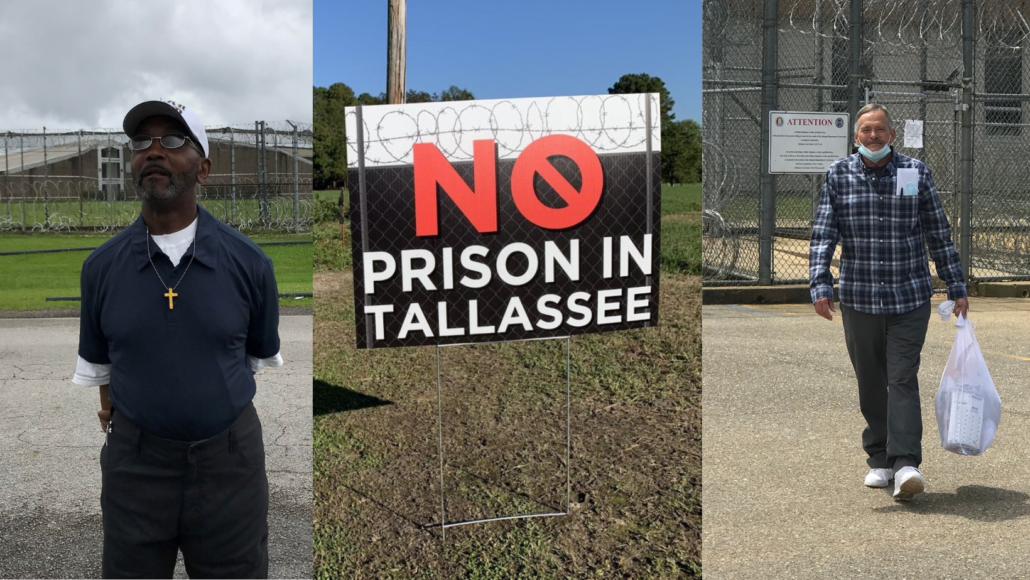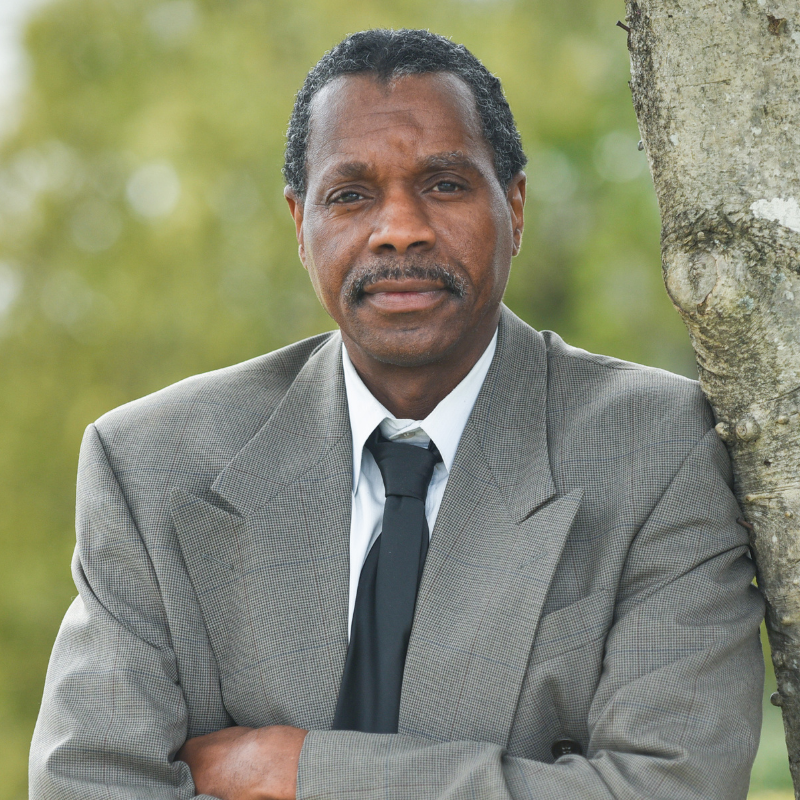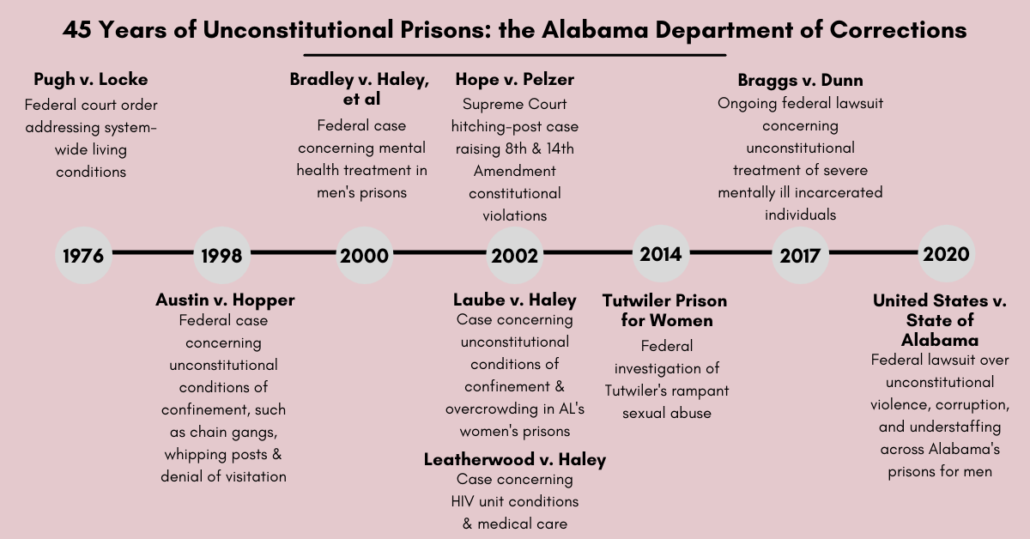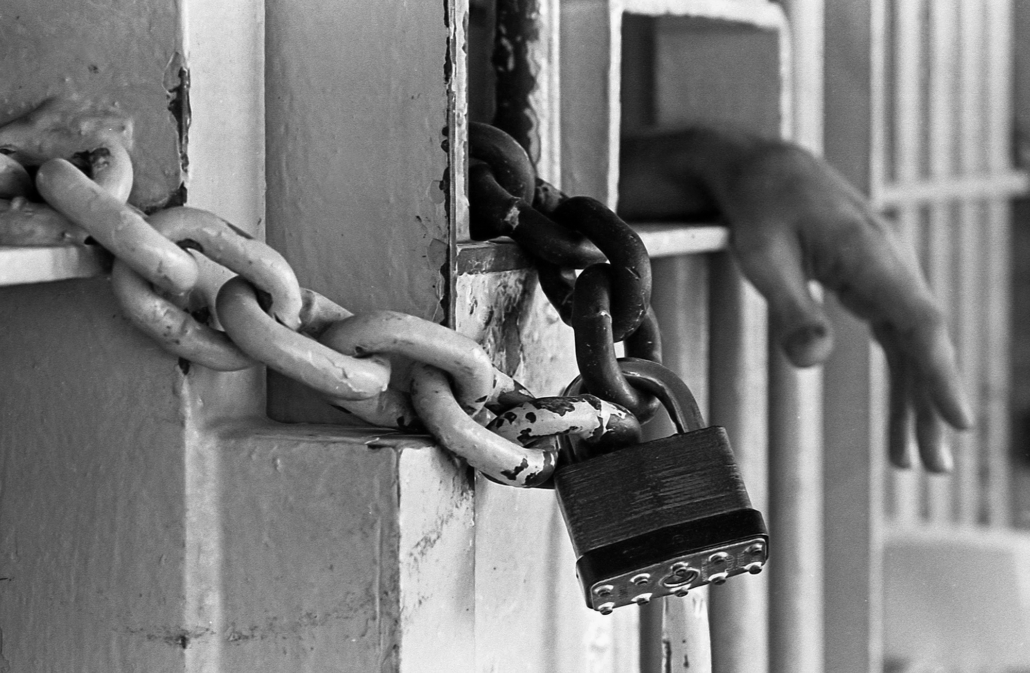Alabama Appleseed is proud of our role in the grassroots effort to thwart the state’s plan to build three private mega-prisons in rural Alabama. This plan was the worst of all worlds: it would have resulted in three costly new prisons that would not be owned by the state but would be operated by the same Department of Corrections whose decades of mismanagement and malfeasance have gotten us where we are.

While we stopped giant companies like CoreCivic that were seeking to profit from Alabama’s reliance on mass incarceration, the Alabama Legislature forged ahead on another prison construction plan by voting to divert $400 million in federal COVID-relief dollars to prisons, part of a $1.3 billion prison construction plan approved by the Legislature in October, 2021. Now, the State plans to build two, 4,000-bed prisons in rural communities in Elmore and Escambia counties. Legislative leadership has acknowledged the new prisons would not relieve overcrowding, they would only replace old facilities that state leaders failed to maintain over the last four decades.
Appleseed, along with the statewide Communities Not Prisons coalition, has fought this wasteful, expensive construction plan.
Appleseed Executive Director Carla Crowder testified before the House Ways and Means General Fund Committee explaining our opposition:
“Appleseed’s concern with this bill is not about fighting new prison construction. It’s because this bill promises an Elmore facility with enhanced medical and mental health care, education and rehabilitation services, humane treatment for elderly people. But it provides no funding for these things.
Our concern with this bill is that Alabama has never built 4,000 bed prisons. We can’t staff 1,000 bed prisons. This bill does nothing to address the staffing crisis that has been unmet even with a federal court order in the Braggs mental health case.”
Opponents have cast our work to stop prison construction as irresponsible, claiming that opposing $1.3 billion for sprawling new buildings means endorsing the consignment of tens of thousands of incarcerated Alabamians to decrepit facilities.
But make no mistake: The choice has never been between building prisons and letting our neighbors rot in deadly ones.

Alabama can change our laws, our policies, and our practices. Repeating the mistakes of the past by caging people in abusive conditions then releasing them with no support has not made our communities safer. People who harm others should face consequences for their actions, but those consequences should be proportional. That means:
- Retroactivity of bi-partisan sentencing reforms that passed in 2006, 2013, and 2015
- Re-examining the use of prison to house elderly people
- Expanded use of parole coupled with meaningful re-entry support
- Greater investment in mental health care
- Accessible diversion programs that allow low-level offenders a second chance
- Smarter drug policy to provide more treatment outside of prison
- Decriminalization of marijuana and expanded expungement opportunities for people with old marijuana convictions
We reject the myth that Alabama faces a binary choice between the status quo and the construction of new prisons. Instead, we ask: how much could Alabama accomplish by investing billions of dollars into our people and communities, in public safety and crime prevention, rather than using that money to repeat the mistakes that landed us here?
Our state is known internationally for its history of racial violence and its present-day crisis of mass incarceration. It simply does not have to be this way.



 Alabama Department of Corrections officers and supervisors are routinely arrested and charged in excessive force and assault cases against incarcerated people. According to the DOJ lawsuit, the Alabama Department of Corrections has “repeatedly failed to take reasonable measures to prevent security staff from inflicting serious harm on prisoners…”
Alabama Department of Corrections officers and supervisors are routinely arrested and charged in excessive force and assault cases against incarcerated people. According to the DOJ lawsuit, the Alabama Department of Corrections has “repeatedly failed to take reasonable measures to prevent security staff from inflicting serious harm on prisoners…” 


